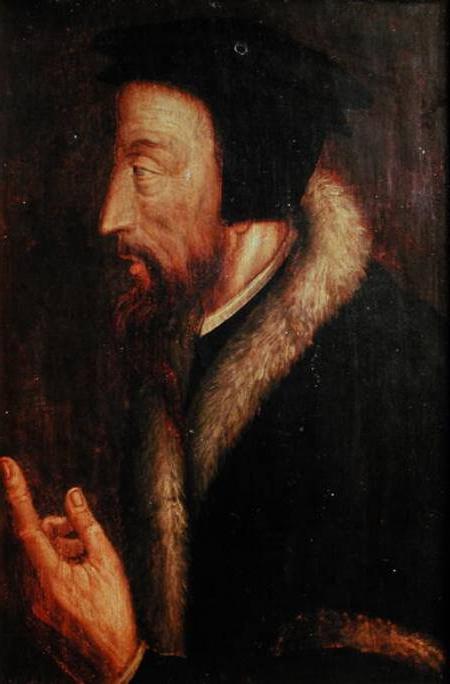prepácio aos salmos; 1557
João Calvino frases e citações
João Calvino: Frases em inglês
Page 17.
Golden Booklet of the True Christian Life (1551)
“The more we are oppressed by the cross, the fuller will be our spiritual joy.”
Page 66.
Golden Booklet of the True Christian Life (1551)
Page 38.
Golden Booklet of the True Christian Life (1551)
Book 3, Chapter 2, Section 32, p. 484
Institutes of the Christian Religion (1536; 1559)
Page 75.
Golden Booklet of the True Christian Life (1551)
“We must not only resist, but boldly attack prevailing evils.”
Prefatory Address, p. 23
Institutes of the Christian Religion (1536; 1559)
Page 35.
Golden Booklet of the True Christian Life (1551)
Page 32.
Golden Booklet of the True Christian Life (1551)
As quoted in The Visual Theology of the Huguenots: Towards an Architectural Iconology of ...y Randal Carter Working Institutes of the Christian Religion, 1.11.12 p.101
Page 19.
Golden Booklet of the True Christian Life (1551)
Book 3, Chapter 2, Section 25, p. 479
Institutes of the Christian Religion (1536; 1559)
Book 1, Chapter 6, p. 70
Institutes of the Christian Religion (1536; 1559)
Fonte: A Treatise of Relics (1543), p. 10-11
Page 32.
Golden Booklet of the True Christian Life (1551)
Page 78.
Golden Booklet of the True Christian Life (1551)
Book 1, Chapter 1, p. 45
Institutes of the Christian Religion (1536; 1559)
Traité des reliques http://www.gutenberg.org/files/32136/32136-h/32136-h.html, translators: Krasinski, Valerian, Count, approximately 1780-1855. P. 233.
Commentary on Luke 1:43.
Harmony of Matthew, Mark, Luke
Page 32.
Golden Booklet of the True Christian Life (1551)
Sermon on 1 Timothy, ch. 3. The 22 Sermon upon the second Chapter http://www.truecovenanter.com/calvin/calvin_22_on_Timothy.html Sermons on Timothy and Titus (16th-17th century facsimile editions), p. 265. pdf images http://www.puritansermons.com/pdf/calvin05.pdf
Book 3, Chapter 2, Section 25, p. 479
Institutes of the Christian Religion (1536; 1559)
Page 48.
Golden Booklet of the True Christian Life (1551)
“Everyone flatters himself and carries a kingdom in his breast.”
Page 32.
Golden Booklet of the True Christian Life (1551)
Page 41.
Golden Booklet of the True Christian Life (1551)
Page 38.
Golden Booklet of the True Christian Life (1551)
Commentary on Genesis, Genesis 38:8-10, (1554)
Genesis (1554)
Book 1, Chapter 4, p. 55
Institutes of the Christian Religion (1536; 1559)
Page 28.
Golden Booklet of the True Christian Life (1551)
A Response To Questions and Objections of a Certain Jew (Ad quaestiones et objecta Judaei cuiusdam responsio).
Commentary on Acts CR 48 104; as quoted in War Against the Idols: The Reformation of Worship from Erasmus to Calvin by Carlos M. N. Eire p.222
